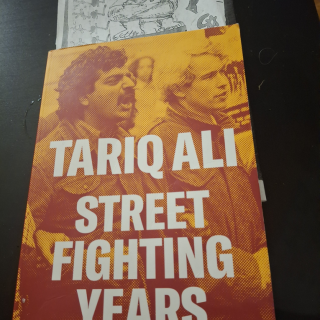Advertisement
I would swear on the graves of my parents and four grandparents that this is the most common question from white people when a race-related incident occurs or the subject of race comes up. It is often asked with an exasperated tone of voice, accompanied by an oh-here-we-go-again eye roll, and followed by an explanation from the white person about how they cannot possibly be racist because they have a Black son-in-law or frequently go to lunch with a Black co-worker or root for whatever team LeBron James is playing on. (Many years ago a manager in a now defunct women’s store I used to patronize told me “I should be a Black person because I love soul music so much” when a song by a Black recording artist began playing on the Muzak system.) Being thought of as racist is insulting and scary for many white people. It immediately puts them on the defensive.
As I frequently told the students in my African American history classes, everything in America, no matter how innocuous, can be tied to race. There was always at least one student in every class who would toss random subjects my way to prove that I was wrong. They were never successful. Survey data has shown us time and again that the majority of whites are loathe to acknowledge racism, dissect it, or do anything about it. One can almost see them squirming whenever the topic is broached. For many whites to grapple with racism would necessitate admitting that they are indeed racist, and that is not about to happen.
According to Boykin, there are five common ways that people try to dismiss white supremacy and the persistent anti-black feeling in America: they attempt to erase the history of Black people in the United States, they give priority to white victimhood, they deny Black oppression, they promote the myths of Black inferiority, or they rebrand racism as something else. There have been a number of occasions when I described a racist incident that happened to me to my white friends, only to have them pooh-pooh it by saying it must have been my imagination. I no longer do that.
Each chapter of the book begins with a small chart that on one side states an argument about race and next to it a short response to that argument. For example, in the chapter on critical race theory (CRT), he quotes Florida Governor Ron Desantis’ statement about how CRT teaches school children to hate our country or each other. Next to that argument is a statement that CRT teaches students the real history of America, how that history continues to impact us today, and how we might make the country a better place. Boykin then proceeds to explain in detail what CRT really is, how and when it is taught–it is not taught in grades K-12 and rarely in undergraduate school–and how some politicians have used it to stoke fear and loathing.
Boykin is a television and film producer, a best-selling author, and a graduate of Dartmouth College and Harvard Law School. A multiple nominee for and winner of the Lambda Literary Award, he has taught at Columbia University in the Institute for Research in African American Studies. Boykin is also the cofounder of the National Black Justice Coalition which works to end LGBTQ/SGL bias and homophobia.
Why Does Everything Have to Be About Race? clearly shows us how disinformation, misinformation, and outright lies are used to erase the history of our country, the lived experience of Black people, and mark blacks as whiny, ungrateful, and incapable of “letting go” of race. In the process, the reader learns and examines how the history of our country is a more beautiful and terrible thing than we are willing to admit.



